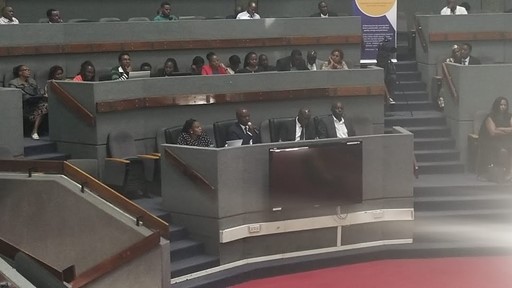
- Date
- 29th November 2023
- Categories
- Electric Cooking, Scaling eCooking
By Dr Jon Leary, Beryl Onjala, and Syprose Ochieng (Gamos East Africa).
This is the first in a two part blog series that tells the story of how Kenya’s new electricity tariff band was created to support the growth of the emerging eCooking sector. Commitment from both the regulator and the utility enabled this important evolutionary step in the regulatory landscape, marking a key milestone in the development of the enabling environment for eCooking in Kenya.
In January 2023, the Energy and Petroleum Regulatory Authority (EPRA) made an important announcement: Kenya Power and Lighting Company (KPLC) submitted a Retail Tariff Application for the 2022/23 – 2025/26 tariff control period, and in response, EPRA planned to conduct nationwide public consultation hearings to sensitize the public about the tariff application and ensure active involvement from stakeholders.
The Clean Cooking Association of Kenya (CCAK) and the Kenya Renewable Energy Association (KEREA) invited stakeholders within the eCooking Community of Practice (CoP) to submit their views. Dr. Jon Leary, Senior Researcher at MECS, collated and submitted our insights via email and also attended an in-person public consultation hearing in Nairobi.
During the public consultation, Dr. Leary posed a question regarding the feasibility of developing a dedicated eCooking tariff specifically aimed at assisting low-income households, similar to the eMobility tariff, which had already been included in the draft tariff structure out for review. In response, the Kenya Power Managing Director explained that the eMobility tariff had been designed to enable public service, primarily targeting organizations offering charging services to a large number of vehicles, such as bus companies or petrol stations. He added that customers charging electric vehicles at home would continue to pay the standard domestic tariff. Since eCooking, occurs at home, it is considered an individualized consumption of electricity (rather than a service to the public) and is difficult to disaggregate from other domestic uses of electricity as it is all metered using a single household meter.
While the tariff review process was ongoing in Nairobi, the South Africa Climate Parliament on SMART cooking was also underway in South Africa. Among the attendees from the MECS Programme was Prof. Ed Brown. Interestingly, some members of the EPRA team, including John Mutua, Director of Economic Regulation, were also present at the Climate Parliament. Ed and John engaged in a conversation regarding the ongoing tariff review in Kenya. During their discussion, they drew parallels with the Ugandan eCooking tariff, which offers a significant opportunity for increasing energy consumption and enhancing the profitability of Umeme, the primary Ugandan utility.
They also explored the prospects of implementing a targeted reduction of wasted energy vented from geothermal plants at night, which could be promoted through a more heavily discounted Time of Use tariff designed for individuals with programmable EPCs or household energy storage, enabling them to schedule cooking activities during off-peak hours. Following their conversation, Ed introduced John Mutua to Jon Leary, and a meeting with EPRA was arranged to discuss the potential implementation of an eCooking tariff.
EPRA convened a collaborative meeting that brought together key stakeholders from the eMobility and eCooking sectors. The MECS team was invited to this meeting and extended invitations to CCAK, PowerPay, and Burn Manufacturing to ensure the effective representation of the eCooking sector. During the meeting, John Mutua delivered the opening remarks, referencing the successful implementation of the eCooking tariff in Uganda and emphasizing the importance of Kenya’s participation in similar initiatives. He underscored the necessity of striking a balance between consumer needs for affordable energy services and the utility’s needs with regard to financial sustainability.
The eCooking team subsequently delivered a presentation that highlighted the value of electric cooking to both the consumer and the utility, and, therefore, the importance of maintaining affordable tariffs to keep electricity competitive with other cooking fuels. Various approaches to designing an eCooking tariff were explored with EPRA, including a proposition by Meredith Muthoni, Senior Financial Analyst in Burn’s Electric Team, for introducing a new tariff band between the previous (100kWh/month) and proposed (30kWh/month) lifeline allowances. After the meeting, EPRA invited written submissions outlining the proposals in detail.
The following week, CCAK and MECS jointly organized a dialogue with the members of the eCooking CoP to discuss the various options that would be submitted to EPRA to facilitate the design of an eCooking tariff, after which the views received from the members of the CoP were compiled and submitted as a detailed proposition to the proposed amendments to support the growth of the eCooking sector. The discussions continued at the INEP (Integrated National Energy Planning) workshop in Naivasha, where John Mutua and Jon Leary both made presentations.
…………………………
Featured image, top: Geoffrey Muli, Ag. MD Kenya Power, at the Stakeholder Consultation Workshop on the Kenya Power Tariff Review, KICC, Nairobi (image credit: Jon Leary, Gamos East Africa).